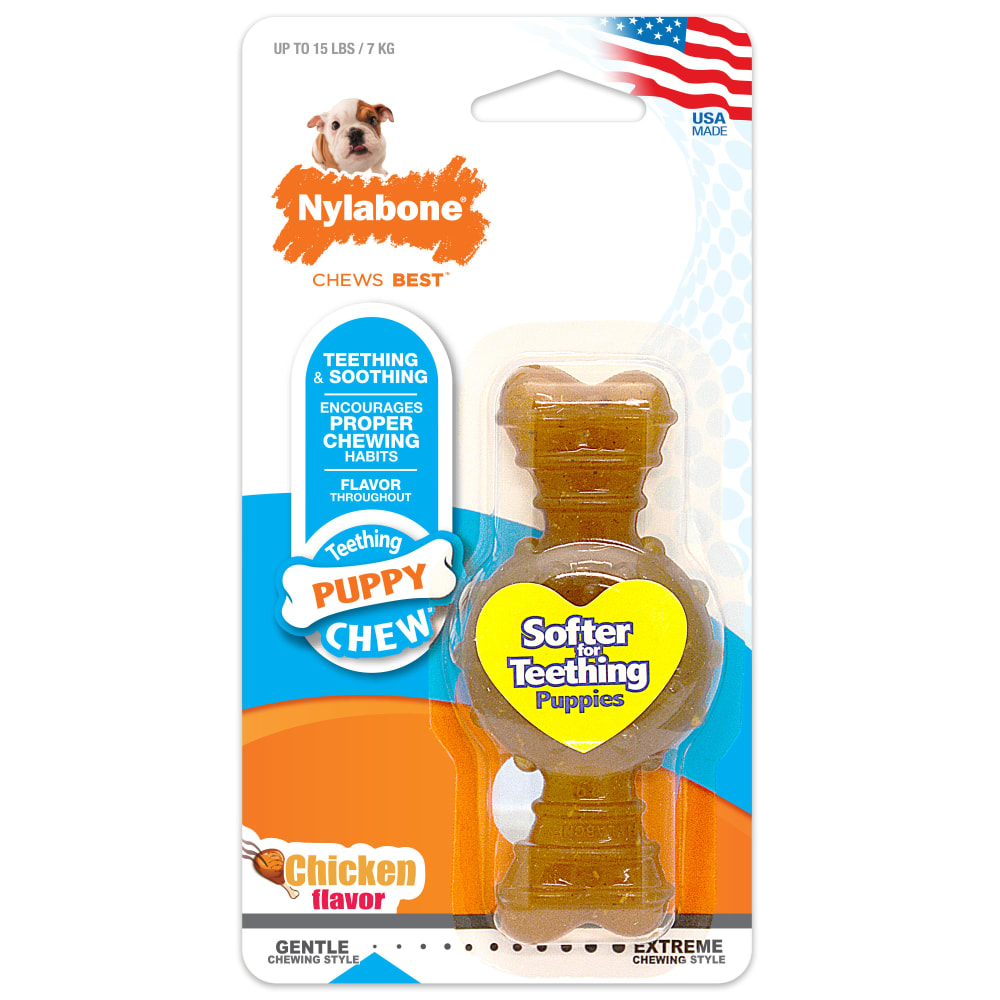Managing Puppy Teething
By four or five months of age, your puppy will start teething. Many puppies teethe until they are 9 to 12 months old! Chewing helps relieve the pain and pressure that comes along with teething—in fact, chewing is really the only thing puppies can do to help lessen the discomfort. Here are some steps you can take to help manage puppy teething:
#1: Puppy-Proof Your Home
As with human infants, the first rule to manage chewing is to control the environment. Keep tempting items out of reach either by locking them up or disallowing doggy access to areas where these things reside. Keep shoes in the closet, towels in their drawers, and magazines on higher shelves.
#2: Introduce Appropriate Chew Toys
Chew toys are among the best types of puppy toys to promote a healthy furry friend. Softer chew toys made from rubber or other flexible materials are specifically designed for puppies without adult teeth. You can also try freezing a washcloth that has been tied in a knot to help soothe sore teeth and gums. Teaching him to chew on appropriate items will ensure that the transition from teething puppy to well-trained adult dog is a happy one for all.
#3: Correct Inappropriate Chewing
If your puppy starts to nibble on or has an inappropriate item in his mouth:
FOLLOW US!





